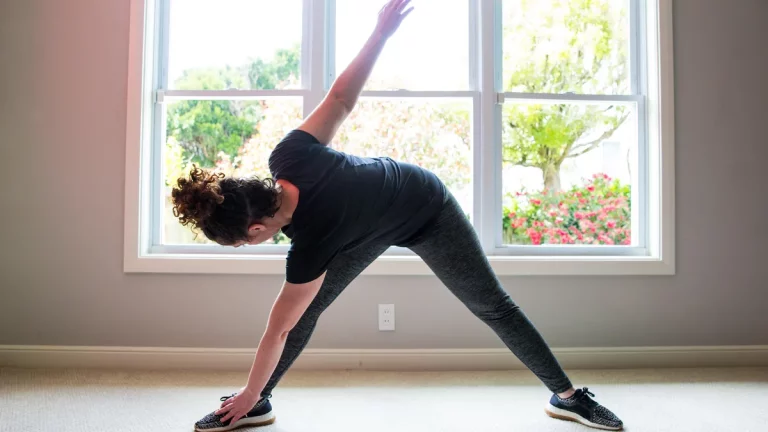Here are the Exercise Benefits Both Mind and Body
We recognize the importance of regular exercise in maintaining a healthy body and reducing the risk of chronic illnesses like heart disease and diabetes. Furthermore, the significance of exercise in promoting mental well-being is increasingly evident. Studies have shown that exercise can effectively treat various mental health conditions, including depression, anxiety, eating disorders, bipolar disorder, schizophrenia, and more.
How does exercise have such a profound effect on our mental health? And how can individuals struggling with mental health concerns find motivation to engage in physical activity?
Activating the “Happy Hormone”
Physical activity activates the release of a neurotransmitter called dopamine, often referred to as the “happy hormone.” Dopamine is released in the brain when you do things you enjoy, such as eating your favorite foods, shopping, engaging in sex and yes – exercising. Dopamine creates a cycle of motivation, reward and reinforcement. When we exercise, dopamine tells our brain that this is a pleasurable experience and that we should keep engaging in this activity.
For example, suppose your favorite form of exercise is jogging. Your brain may increase the release of dopamine as you lace up your sneakers or take a few moments to stretch before you begin. When you start jogging, a flood of dopamine hits your brain and reinforces your “craving” to engage in this activity. Your brain remembers this flood of dopamine and associates it with jogging, thus encouraging you to jog again in the future.

Exercise as a Treatment Method
Neurotransmitters called serotonin (a hormone that stabilizes our mood) and norepinephrine (a hormone that increases heart rate and helps break down fat) also increase during exercise. Norepinephrine and serotonin are a great pair. Together, these chemicals help combat depressive episodes and boost energy and alertness. Exercise increases levels of serotonin, dopamine and norepinephrine in the brain, just like medications can. Exercise improves and helps regulate neurotransmitter levels, which ultimately helps us feel mentally healthy. In fact, exercise can be a great way to treat mild-to-moderate mental health disorders without medications and their potential side effects. For moderate-to-severe mental health disorders, exercise can act as a supplement to medication and therapy.
Other important mental health benefits of exercise include enhanced mood and energy, reduced stress, better sleep, improved mental clarity, improved social health and relationships and higher self-esteem.
What Counts as Exercise?
There are plenty of ways to exercise aside from running laps and lifting weights at your local gym. For most people, moderate physical activity is enough to reap mental health benefits. Moderate physical activity is when your breath quickens, but you can still carry on a conversation. Here are some of my favorite options:
- Walking outside
- Dancing
- Online workout classes
- Yoga
- Riding a bike
- Hiking
- Pushing a lawnmower
- Vacuuming or mopping
The U.S. Centers for Disease Control and Prevention recommends adults get at least 150 minutes per week of moderate-intensity aerobic activity or 75 minutes per week of vigorous aerobic activity, such as running, swimming laps or jumping rope. It’s great to spread the exercise throughout the week and to incorporate both moderate-intensity and vigorous aerobic activity into the workout routine. For many adults that means aiming for 30 minutes of exercise, five days a week.
You can also achieve your weekly activity target with several short sessions of very vigorous intensity activity throughout the week (ex. circuit training, lifting heavy weights) or a mix of moderate, vigorous and very vigorous activity every few days. In general, 75 minutes of vigorous intensity activity a week can give similar health benefits to 150 minutes of moderate intensity activity.
If you haven’t exercised in a long time, don’t worry if you can’t reach 150 minutes per week just yet. Everyone has to start somewhere: Just set a reachable goal for today. You can work up toward the recommended amount by increasing your time as you get stronger. Don’t let all-or-nothing thinking keep you from doing what you can every day.

Getting Motivated
If you’re feeling depressed, exercise is probably the last thing you want to do. It’s important to recognize that lack of motivation can be a symptom of depression, and it’s never anyone’s fault for feeling this way. I educate my patients about breaking the cycle of feeling unmotivated and encouraging them to take one small step at a time. Something as small as persuading yourself to go outside for a few minutes can jumpstart your brain to release dopamine and get you on the right track.
Exercising with other people can also be an excellent motivator. Group fitness classes can build a strong sense of community and introduce you to accountability partners. In one study, group fitness participants reaped more mental health benefits than individual fitness participants. Researchers found working out in a group lowers stress by 26 percent and significantly improves quality of life, while those who exercised individually experienced fewer changes in their stress levels.
You may be wary about participating in group fitness during the pandemic, but there are plenty of safe exercise options available. Activities like a brisk outdoor walk with friends, watching an at-home group workout video, hiking in a local park or going for a family bike ride can combine fitness and social interaction.
Research has found that sitting for long periods of time can negatively affect your health, too. If you sit for several hours a day at work, aim to take regular breaks during the day to move, such as walking to get a drink of water or standing during phone conversations or video meetings. If you’re working from home, stretch, walk or climb stairs on breaks. Walk your dog if you have one. Pedal a stationary bike, walk or jog on a treadmill, or do strength training exercises during your lunch break or while you watch TV at night. Even if you feel strapped for time, there are still ways to reach your exercise goals!
Resources
My patients at Kaiser Permanente have access to wellness coaches who offer one-on-one guidance to help set goals, stick to them and see results. Partnering with a wellness coach can help you make healthy eating choices, lose weight and increase activity levels. Kaiser Permanente members can call 1-866-862-4295 to make an appointment. Your primary care physician can also be your first point of contact for questions about exercise and mental health.
Exercise is essential to our physical and mental well-being. This new year, challenge yourself to get active and try new activities with family and friends. Your brain and your body will thank you!
Your primary care physician can also be your first point of contact for questions about exercise and mental health.



